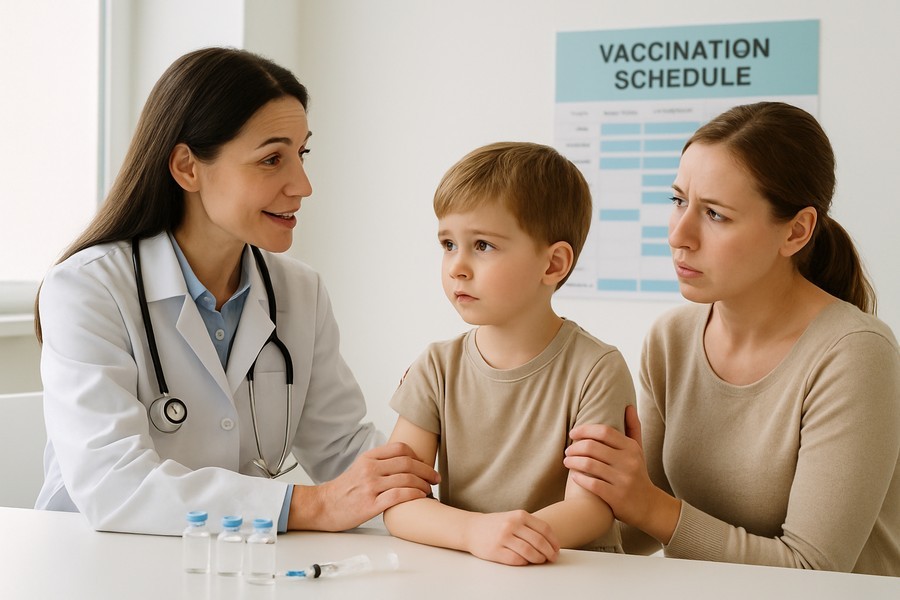
Why Experts Warn Against Delaying Your Kid's Vaccinations
For some parents, the decision to delay their child's routine vaccinations rather than skipping them altogether might seem like a reasonable compromise. However, medical professionals warn that such a choice could put the health of the child and the community at risk. It could lead to outbreaks and weaken protection against life-threatening diseases.
Unfortunately, the rate of childhood vaccinations has been decreasing nationwide. Experts believe this is largely due to misinformation about the safety of vaccinations. The fear of vaccines has been heightened by influential figures who suggest breaking up childhood vaccinations into multiple doctor visits and even postponing some.
The Current Vaccination Schedule: Why It Matters
The childhood vaccination schedule, as recommended by health agencies, is a detailed timeline that outlines the necessary shots for kids as they grow. This schedule takes into account the best time for certain vaccines to protect a child from dangerous diseases.
To minimize doctor visits and quickly safeguard children, multiple shots are often given at the same time. This approach not only saves parents time and money but also reduces the child's distress. For instance, the measles, mumps, and rubella (MMR) vaccine is given as a combination to lower the number of shots during a visit.
Parents are advised to vaccinate their children before they turn two against various infectious diseases, such as measles, chicken pox, hepatitis B, tetanus, whooping cough, and polio. However, a recent survey found that one in six parents have delayed or skipped some vaccines for their children, and a quarter of parents felt that too many childhood vaccines are recommended.
Consequences of Vaccine Delays
Postponing a child's vaccination outside the recommended schedule exposes them to diseases at a time when they are most susceptible to falling ill, developing serious complications, or even death if they contract the disease. This is because their organs are still developing, and their immune systems are not fully equipped to combat certain infections.
If a child contracts a vaccine-preventable disease like whooping cough, they are at a significantly higher risk of severe acute disease, hospitalization, or death. Other diseases, like hepatitis B, increase the risk of developing health complications later in life. Therefore, the risk of complications from these diseases is much higher than the exceedingly rare chance of serious vaccine side effects.
The vaccine for human papillomavirus is recommended for children aged 11 or 12, typically before they're exposed to the virus through sexual activity. This is also the age when they are most likely to produce the maximum number of antibodies. The HPV vaccine can potentially prevent over 90 percent of cancers caused by the virus.
Do Multiple Vaccines Overwhelm the Immune System?
No, vaccines do not overwhelm the immune system. They actually help it recognize and combat specific diseases. Vaccines contain tiny parts of viruses or bacteria, known as antigens, that trigger an immune response when introduced into the body. The number of antigens in a vaccine is substantially lower than what a child would encounter if exposed to the disease itself, so the vaccines do not cause serious illness.
While the majority of parents choose to vaccinate their children, these rates are decreasing. About 92.5 percent of kindergartners received their MMR vaccines last school year, with lower rates in some regions. To achieve herd immunity against measles, over 95 percent of a community needs to be vaccinated.
This decrease in vaccination rates is alarming. As vaccination rates drop, we risk the return of these diseases. It's crucial to understand the importance of vaccinations and follow the recommended schedule for the health of our children and communities.
